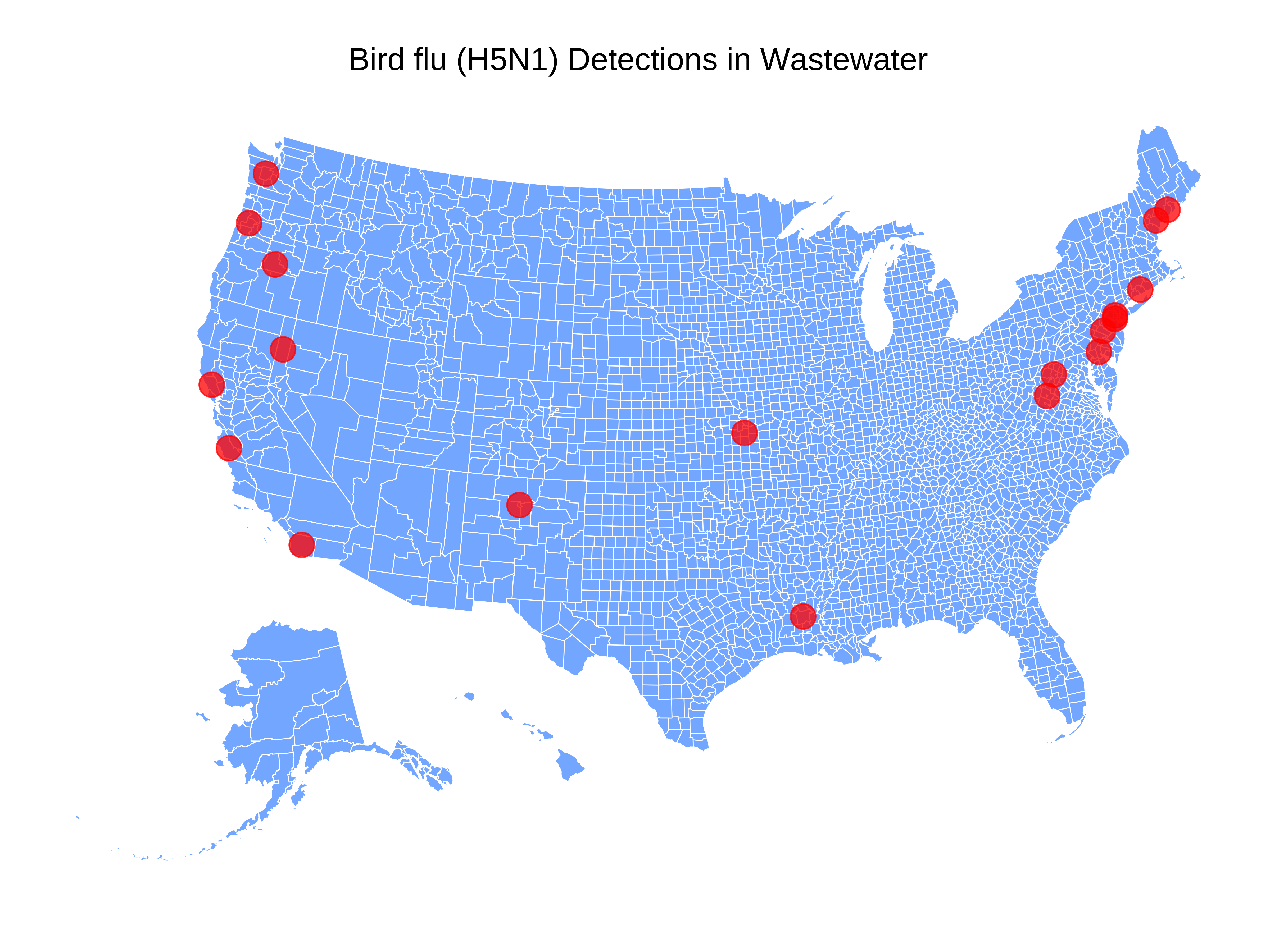
Blog
Harnessing Wastewater Data to Support Healthcare Ecosystems

January 8, 2024
Early in the COVID-19 pandemic, wastewater-based epidemiology proved to be a vital tool for hospital systems and healthcare providers in safe operational planning. As wastewater data revealed the impending spike in COVID-19 cases due to the Omicron variant, for example, Boston Children’s Hospital responded by rescheduling nonemergency procedures to limit unnecessary exposure risk.
Although the public emergency has ended, wastewater data continues to provide value to the healthcare ecosystem, with growing interest from and impact for providers, distributors, manufacturers, payers, and educators. This is because wastewater data provides a comprehensive and near-real-time view into community health through analysis of a broad range of pathogens and biomarkers – we refer to these collective insights as “wastewater intelligence.” Wastewater intelligence can provide a more inclusive and accurate picture of disease prevalence, even before clinical cases are reported, allowing for proactive measures to prevent, diagnose, and treat.
- Improving Community Education: Wastewater intelligence can raise early warning signs of undiagnosed disease spread, allowing for outreach efforts that make community members aware of local health risks and encourage early testing and treatment.
- Optimizing Vaccine Distribution: As we near the peak of the respiratory “tripledemic” season of COVID-19, flu, and RSV, vaccines are again a top priority. Understanding the geographic spread of these viruses accurately and timely helps manufacturers and healthcare systems anticipate demand and target resources to ensure vaccines are adequately stocked and barriers to access are removed.
- Ensuring Prescription Availability: A near-real-time map of disease burden allows healthcare ecosystems to more quickly identify communities with a higher prevalence of certain illnesses and anticipate an increased demand for specific medications. This proactive approach can help keep pharmacies well-stocked with the necessary prescriptions, aligning healthcare resources with anticipated needs.
- Informing Clinical Visits: Knowledge of prevalent illnesses within a community can sharpen diagnostic accuracy. This awareness can aid physicians in correlating symptoms with active health trends, allowing for more informed and timely diagnoses. It’s a step towards personalized community health care, where treatment plans are informed by the wider health landscape.
The potential benefits of wastewater intelligence in supporting the healthcare ecosystem are just beginning to be realized. Strategies informed by wastewater data will not only optimize the systems and decisions underlying the healthcare ecosystem but also ensure timely access to essential resources for communities, preventing treatment delays and contributing to more effective disease management.
Later this month, Biobot will release its Health System Ebook and, in February, host an invite-only webinar that digs deeper into how wastewater data can play a supporting role in ensuring patients get the care they need, where and when they need it. If interested in joining us, please reach out to hello@biobot.io.
Wastewater intelligence can help us move closer to a future where public health decisions are proactive, precise, and tailored to community needs. Wastewater is not just a byproduct of a community; it’s a valuable asset for enhanced public health.
Written by Genevieve Rogers
Genevieve is a Growth and Strategy Manager at Biobot, focusing on healthcare applications. Her background is at the intersection of technology and social impact, and she is dedicated to transforming wastewater into valuable public health innovations.





